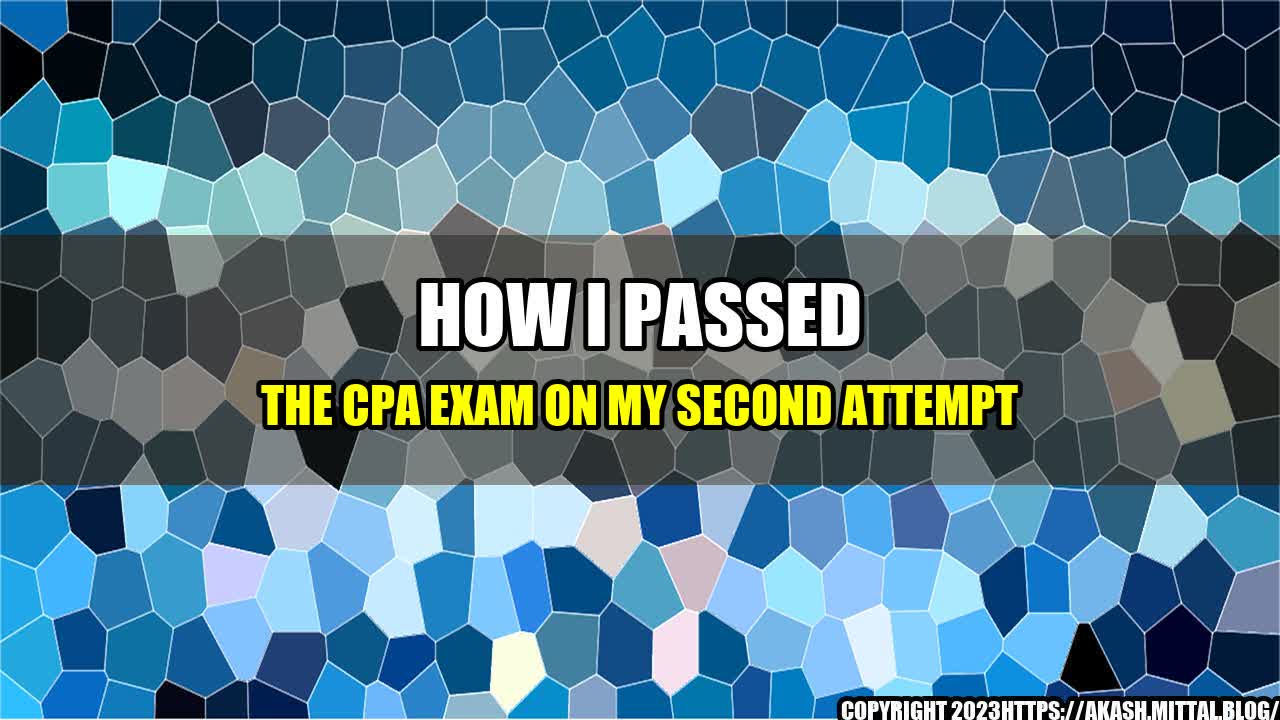
When I decided to become a CPA, I knew it wasn't going to be an easy path. After countless hours of studying, my first attempt at the CPA exam wasn't successful. It was hard to admit to myself that I had failed. However, I didn't let it discourage me. Instead, I used it as motivation to study harder, smarter, and finally pass the exam on my second try. Here's how I did it:
Preparing for the CPA exam requires dedication, discipline, and lots of time. I found it helpful to create a study schedule that worked for me, and I made sure to stick to it. I set aside time every day to study, even if it was just for 30 minutes. I also broke up the material into manageable chunks and focused on one section at a time. By doing this, I was able to cover all the material in a systematic way and avoid feeling overwhelmed.
For example, I studied for AUD (Auditing and Attestation) section for 2 hours every morning before going to work. I created my notes and used 20% of my time to practice the multiple-choice questions. I found this schedule to be effective as it helped me retain the information better.
One of the most effective ways to prepare for the CPA exam is by using practice tests and simulations. They help you get a sense of the format, timing, and types of questions you'll be facing. Personally, I found practice tests to be extremely helpful. They allowed me to identify my strengths and weaknesses and adjust my study plan accordingly.
For example, I used a popular CPA review course that offered hundreds of practice questions. I used these to create mini-tests for myself on each section I was studying. After finishing, I would review the answers and take note of any questions that I got wrong or struggled with. Simulations also mirror the actual exam experience, giving me a chance to practice solving problems within the time limit.
Studying for the CPA exam can be exhausting and stressful. I knew that keeping a positive attitude and staying motivated was key to my success. Whenever I felt overwhelmed or discouraged, I reminded myself of my goals and why I wanted to become a CPA. I also made sure to take breaks and do things that I enjoyed to prevent burnout.
For example, I took a 30-minute walk every day during my lunch break. This helped me clear my mind and boosted my energy for the second half of my workday. During the weekends, I spent time with my friends and family to relax and recharge. Taking care of myself mentally and emotionally was just as important as studying for the exam.
By following these three tactics, I was able to pass the CPA exam on my second attempt. Everyone's journey is different, but by staying disciplined, utilizing resources, and keeping a positive attitude, the CPA certification is achievable for anyone.

If you're interested in learning more about the CPA exam, check out the resources below:
Article Category: Education
Curated by Team Akash.Mittal.Blog
Share on Twitter Share on LinkedIn